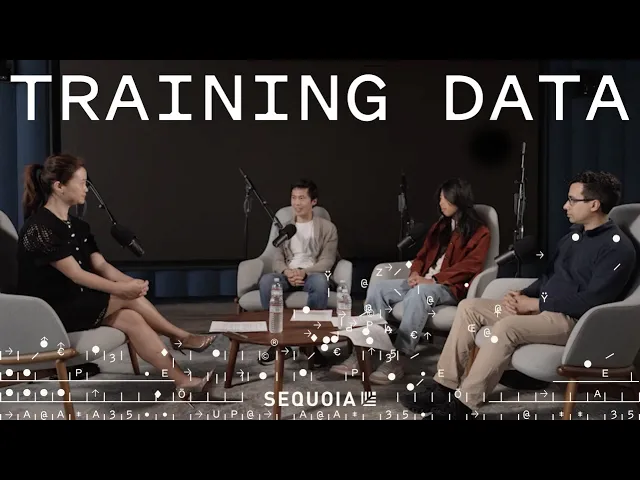OpenAI’s IMO Team on Why Models Are Finally Solving Elite-Level Math

AI tackles elite math problems like never before
In the realm of artificial intelligence breakthroughs, OpenAI's latest accomplishment stands out as particularly significant. The company's research team has developed AI models capable of solving International Mathematical Olympiad (IMO) problems—the kind of elite mathematical challenges that stump even the brightest human minds. This development marks a fascinating inflection point in AI's cognitive capabilities, suggesting machines might finally be crossing a threshold in mathematical reasoning that seemed impossible just a few years ago.
Key points from OpenAI's research:
-
The team has created specialized AI systems that can solve IMO-level problems through a combination of improved reasoning abilities and innovative training approaches, representing a significant advance beyond previous mathematical AI capabilities.
-
Unlike earlier systems that primarily relied on pattern matching, these new models demonstrate genuine mathematical reasoning—they can break down complex problems, explore multiple solution paths, and verify their own work similar to how human mathematicians approach challenges.
-
OpenAI's approach involves specialized training on mathematical content and novel techniques for generating high-quality mathematical problems, allowing the AI to develop expertise comparable to successful human IMO competitors.
Expert Analysis: The Learning Breakthrough
The most profound insight from OpenAI's work isn't simply that AI can now solve elite math problems—it's how the AI learns to approach these problems. The researchers have essentially created systems that think like mathematicians, not just compute like calculators. This represents a fundamental shift in artificial intelligence capabilities toward genuine reasoning.
This matters enormously for the broader AI landscape because mathematical reasoning has long been considered a pinnacle of human cognitive ability. It requires creativity, abstraction, and the ability to navigate complex logical structures—precisely the skills that previous AI systems struggled to master. If AI can now tackle these elite mathematical challenges, it suggests similar reasoning approaches could be applied to other domains requiring sophisticated problem-solving, from scientific research to business strategy.
Beyond the Olympiad: Wider Implications
What OpenAI's researchers didn't fully explore is how these mathematical reasoning capabilities might transform industries beyond pure mathematics. Consider pharmaceutical development, where discovering new drug compounds requires reasoning through complex molecular interactions. An AI with IMO-level mathematical reasoning could potentially accelerate breakthrough discoveries by exploring solution spaces that human researchers might overlook or take years to investigate.
Another fascinating application lies in climate modeling. Current climate models are limited by
Recent Videos
How To Earn MONEY With Images (No Bullsh*t)
Smart earnings from your image collection In today's digital economy, passive income streams have become increasingly accessible to creators with various skill sets. A recent YouTube video cuts through the hype to explore legitimate ways photographers, designers, and even casual smartphone users can monetize their image collections. The strategies outlined don't rely on unrealistic promises or complicated schemes—instead, they focus on established marketplaces with proven revenue potential for image creators. Key Points Stock photography platforms like Shutterstock, Adobe Stock, and Getty Images remain viable income sources when you understand their specific requirements and optimize your submissions accordingly. Specialized marketplaces focusing...
Oct 3, 2025New SHAPE SHIFTING AI Robot Is Freaking People Out
Liquid robots will change everything In the quiet labs of Carnegie Mellon University, scientists have created something that feels plucked from science fiction—a magnetic slime robot that can transform between liquid and solid states, slipping through tight spaces before reassembling on the other side. This technology, showcased in a recent YouTube video, represents a significant leap beyond traditional robotics into a realm where machines mimic not just animal movements, but their fundamental physical properties. While the internet might be buzzing with dystopian concerns about "shape-shifting terminators," the reality offers far more promising applications that could revolutionize medicine, rescue operations, and...
Oct 3, 2025How To Do Homeless AI Tiktok Trend (Tiktok Homeless AI Tutorial)
AI homeless trend raises ethical concerns In an era where social media trends evolve faster than we can comprehend them, TikTok's "homeless AI" trend has sparked both creative engagement and serious ethical questions. The trend, which involves using AI to transform ordinary photos into images depicting homelessness, has rapidly gained traction across the platform, with creators eagerly jumping on board to showcase their digital transformations. While the technical process is relatively straightforward, the implications of digitally "becoming homeless" for entertainment deserve careful consideration. The video tutorial provides a step-by-step guide on creating these AI-generated images, explaining how users can transform...
